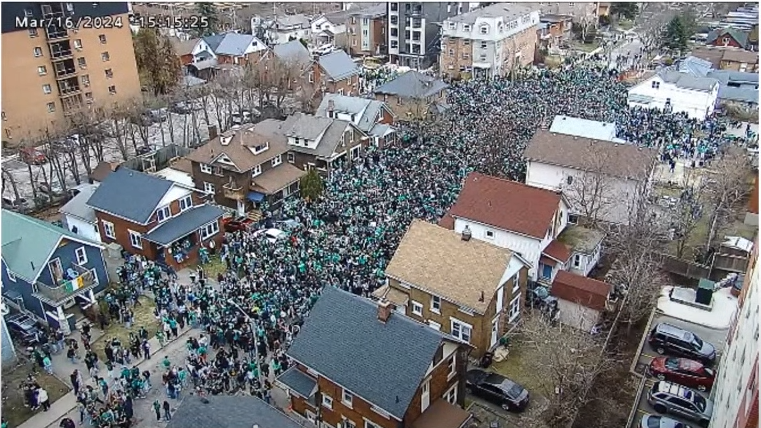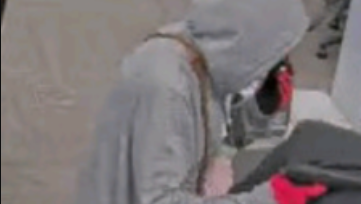Motion passed that could bring changes to next year’s St. Patrick’s Day for university students

Posted Apr 17, 2024 02:52:10 PM.
Last Updated Apr 17, 2024 04:25:38 PM.
A motion was unanimously passed during the Waterloo Regional Police Service Board meeting on April 17 that could change how people party for next year’s St. Patrick’s Day.
The board members agreed that the unsanctioned gatherings need to stop, and a new task force could prevent them from forming. The task force will contain local key players like university presidents, the WRPS police chief and the mayor of Waterloo. As part of the motion, those key players will meet in September to discuss new ways to prevent large street parties from starting.
“Let’s remember it’s an unsanctioned event for a very good reason,” Ian McLean, chair of the police board, said during the board meeting.
“I am really concerned because the inevitable is going to happen. There is a huge risk of catastrophic injury and or death when you have that many people in places that is not meant for that kind of gathering, particularly when alcohol is involved.”
McLean said it feels a lot like Groundhog Day to him, since he previously sat on Waterloo City Council from 2003 to 2010, adding that the problems gets worse every year.
“At the senior levels we have to say this is no longer acceptable in our community we can’t allow this to happen,” McLean said.
The unsanctioned gathering for St. Patrick’s Day this year brought 9,500 people to Marshall Street in Waterloo on April 16. Police said the crowd hit its peak in the afternoon around 3:15 p.m. that day.
“If and when someone gets catastrophically injured or dies people will start pointing fingers, and that’s inevitable. I think we need to get ahead of this and say both from a cost and safety perspective this needs to be addressed,” McLean said.
Regional councillor for Cambridge Doug Craig moved the motion forward.
“I think the motion in itself, in terms of bringing the key players together with recommendations to come in the fall, is a step forward for the community,” said Craig during the board meeting.
WRPS Police Chief, Mark Crowell, echoed the same concerns, adding that it is unsustainable to keep their operations going every year during St. Patrick’s Day events. Crowell supported the motion and said they are willing to work with the task force on next steps.
It cost WRPS $318,000 to police St. Patrick’s Day events in Waterloo last month. Most of that went towards overtime costs which totalled $195,000.
McLean added that the number doesn’t account for City of Waterloo expenses for bylaw officers, EMS expenses and university expenses that may occur due to the unsanctioned gathering.
WRPS said they wanted to be proactive about keeping unsanctioned gatherings from starting early, so they deployed officers on Fri., March 15 and laid 19 charges.
“One of the other things I wanted to highlight was our decrease in citizen-generated calls of service. So, in 2023, we had 119 of those. And in 2024 we decreased that to 71,” said Insp. Donna Mancuso during the board meeting.
During the unsanctioned gathering, WRPS made 10 arrests, which is down from 18 the year before. They also said 257 charges were laid, which is down from 230 the year before.
WRPS also unveiled the results of their pilot project that took place over four days from Fri., March 15 to Mon., March 18 using closed-circuit television (CCTV) cameras.
The CCTV pilot project aimed to support WRPS operations during that weekend. It was in collaboration with the City of Waterloo and followed provincial guidelines for privacy concerns.
“This pilot was meant to support the operational response to any crowd management issues or criminal incidents related to an unsanctioned gathering event,” said Mancuso.
WRPS used the unsactioned gathering as a testing ground for the new cameras, citing they needed a large crowd where cellular data transmission traditionally fails.
They said they gave the public notice of the CCTV cameras through signage that was posted at least five days prior.








